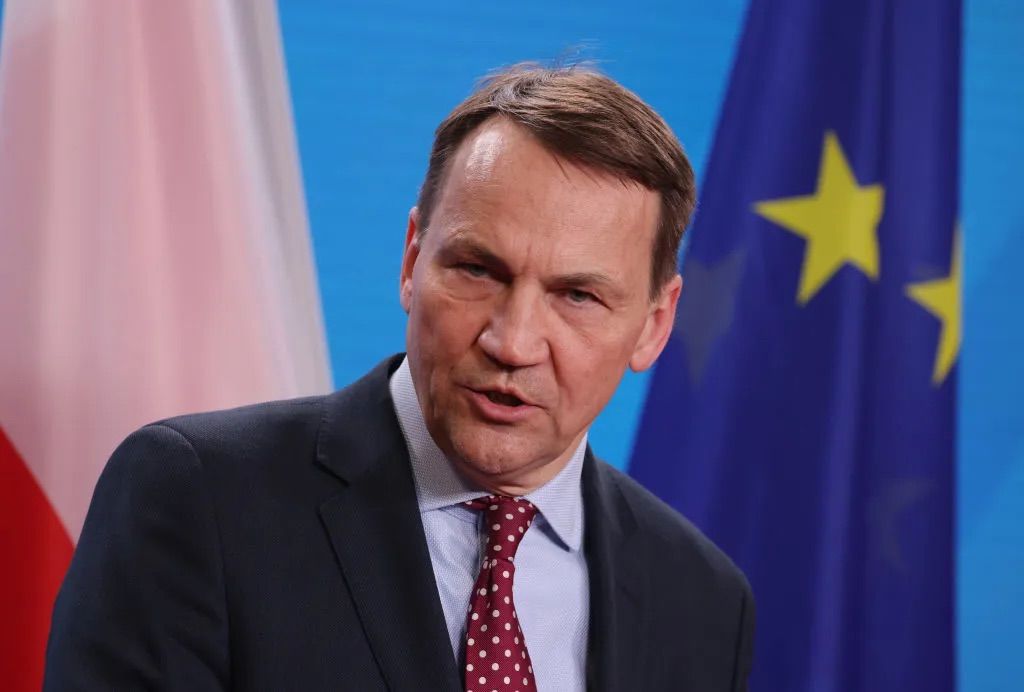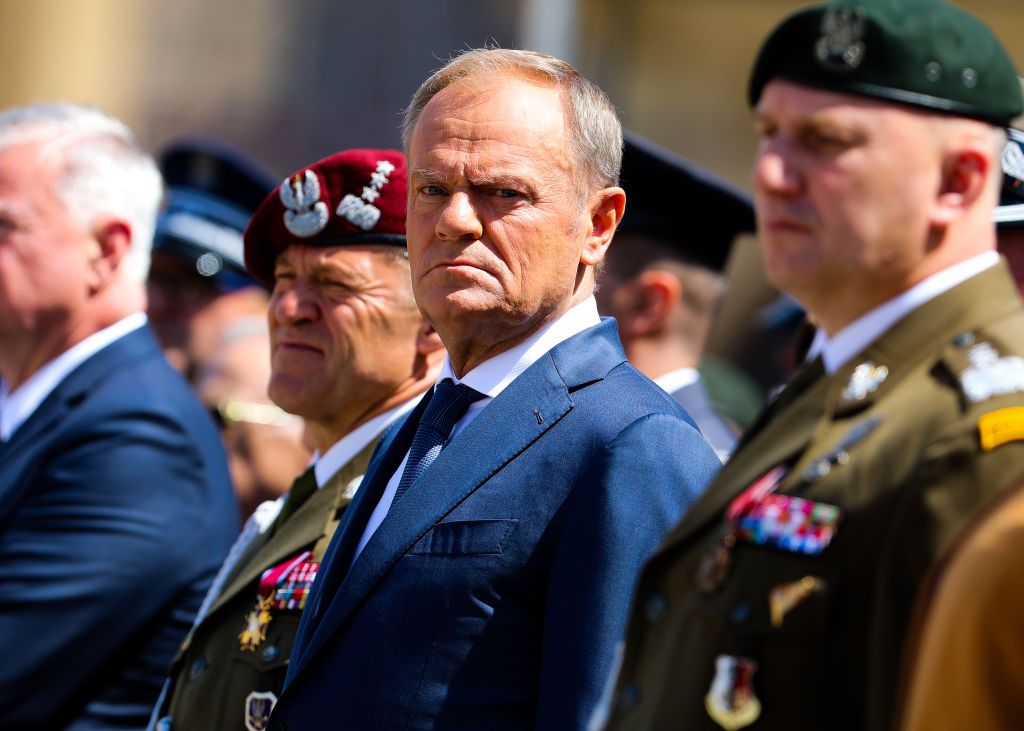Following the death of a Polish soldier stabbed at the Polish-Belarusian, Warsaw reintroduces its buffer zone and demands that Belarus extradite the suspected attacker.
Belarus joins in the second stage of Russian nuclear drills, simulating the combat use of tactical nuclear warheads, with the aim of undermining Western support for Ukraine.
Poland establishes a special commission to investigate Russian and Belarusian influence over the past 20 years and examine national security threats amid rising tensions.
U.S. Congress updates Belarus Democracy Act, backing democratic opposition and condemning dictator Alexander Lukashenko's human rights violations and support for Russia's war.
A Belarusian court adds two extra years to a railroad saboteur's lengthy sentence for targeting Russian military supply trains in the early days of Russia's full-scale invasion of Ukraine.
Poland demands Belarus extradite migrant responsible for killing Polish border guard
The Polish Foreign Ministry summoned the chargé d'affaires of Belarus in Warsaw Aliaksei Pankratenka on June 6, demanding that Minsk extradite a migrant suspected of stabbing a Polish soldier, the ministry's press office reported.
The ministry also demanded that the regime of Belarusian dictator Alexander Lukashenko halt its "provocations at the border."
Twenty-one-year-old Mateusz Sitek, a soldier from the first Warsaw Armored Brigade, was stabbed with a makeshift spear at the Polish-Belarusian border in late May. He died of his injuries at the Military Medical Institute on June 6. Polish media reported that investigators obtained video footage of the incident confirming that the attacker was an illegal migrant.
The Belarusian Border Committee pledged to cooperate with Polish investigators provided they receive "substantial background data and the necessary information about the incident."
Belarusian Foreign Ministry spokesman Anatoly Glaz claimed that Minsk would consider the Polish request but presented a condition: "Belarus is ready to restore cooperation in the law enforcement sphere, but this is a two-way street," Glaz said. "Therefore, it is possible to restore such interaction only in full."
The majority of Belarusian citizens fleeing political persecution at home have moved to Poland, and the Belarusian diaspora there has quadrupled in size. The diaspora includes some prominent 2020 protest leaders and journalists.
On June 10, Polish Prime Minister Donald Tusk summoned the National Security Council (NSC) to meet in Bialystok, 54 kilometers from the Belarusian border, to discuss the safety of Polish border guards amidst the intensifying border crisis. At a press conference after the meeting, Tusk claimed that over the past six months, Polish border guards had fired more than 1,000 warning shots across the Polish-Belarusian border – 770 of them being fired in May alone.
The Operations Center of the Polish Ministry of Defense previously said that, as of May 28, prior to the deadly attack on Sitek, 40 soldiers had been injured in direct clashes with migrants.
Poland on June 13 was to build a 200-meter-deep buffer zone on a 44-kilometer stretch of its border with Belarus, and a 2-kilometer-deep zone along another 16 kilometer stretch. The country previously set up buffer zones near the border at the height of the migration crisis in 2021.
Poland's relations with Russian ally Belarus have deteriorated in 2020. Warsaw has also long accused Belarus of deliberately pushing migrants across the border into Poland in order to pressure the EU over sanctions – a charge Belarus has denied.
Poland's border guards report that there are around 400 illegal border crossing attempts daily, with the total number of attempts soaring to 17,000 since the beginning of 2024. The majority of migrants have Russian visas, according to Polish Defense Minister Wladyslaw Kosiniak-Kamysz, which he said proves the involvement of the special services of Belarus and Russia.
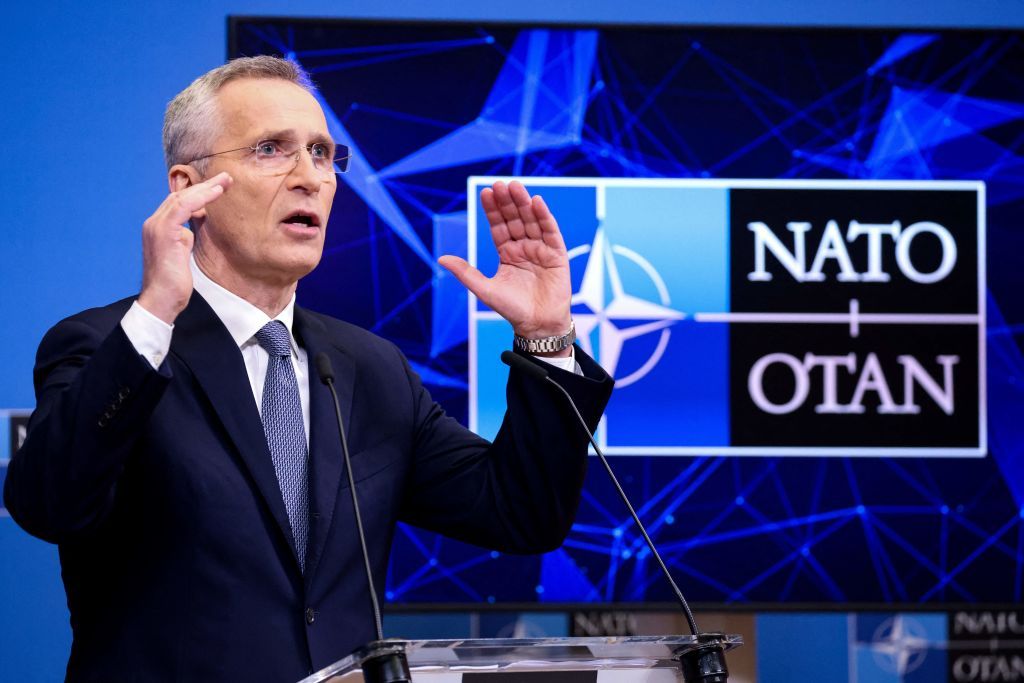
Belarus and Russia launch second stage of tactical nuclear drills
The Russian Defense Ministry on June 11 announced the launching of the second stage of military drills simulating the launch of tactical nuclear weapons. Belarusian Defense Minister Viktor Khrenin said his country would also take part.
According to a statement from the Russian ministry, the joint exercises by Russian and Belarusian units are designed to practice the combat use of non-strategic nuclear weapons.
The announcement did not specify the location of the exercise or the types of weapons involved.
The Russian Defense Ministry announced on May 6 that it would carry out drills with tactical nuclear weapons in response to purported and unspecified "provocative statements" from the West. The move has been seen as an attempt by the Kremlin to discourage the West from supporting Ukraine.
The Russian nuclear weapons allegedly located in Belarus cannot be used without Moscow's authorization.
During Russian President Vladimir Putin's visit to Belarus on May 23-24, he reportedly discussed Belarus' involvement in the second stage of the nuclear drills with Lukashenko.
Speaking to journalists after the Russian Defense Ministry's June 11 announcement, Kremlin spokesman Dmitry Peskov said that "maintaining combat readiness" is important to Russia in light of "decisions and actions of European capitals and, above all, Washington, that are hostile to Russia."
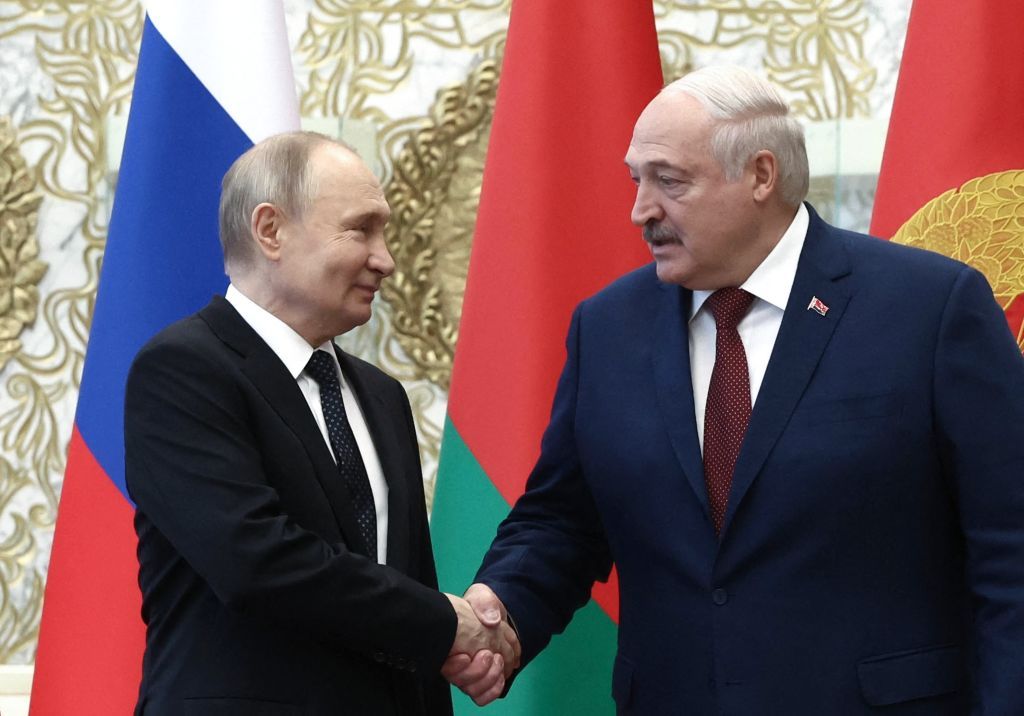
Meanwhile Khrenin, the Belarusian defense minister, claimed that Belarus is not aiming to "create tension" in matters of regional security. He said Belarus was proactively preparing to respond "to any threats posed both to our country and the Union State," referring to the loose political union between Russia and Belarus. migration crisis and the practice of “inhuman treatment of refugees.”
Putin has repeatedly made nuclear threats against Ukraine and the West since the beginning of Russia's full-scale invasion of Ukraine in February 2022. The threats have failed to materialize, and Russia continues to wage its all-out war without resorting to its nuclear arsenal.
Poland to investigate Russian, Belarusian influence
A special government commission set up to investigate Russian and Belarusian influence in Poland has started its work, Polish Prime Minister Donald Tusk said at a press conference on June 5.
The commission, led by the head of the Military Counterintelligence Service, General Jarosław Stróżyk, included 11 academics in the fields of social and political science and communication, along with former members of the military and diplomatic corps. They were appointed at the suggestion of relevant ministers.
The commission, described as a nonpartisan body of experts seeking to protect national security, has been given two months to evaluate events between 2004 and 2024 and produce a report on their impact on Poland's current and future security. The report will be given to the prosecutor's office.
Polish officials maintain that Poland is facing intensified hybrid attacks from Russia and Belarus, including rising pressure from the migration crisis at the Belarus-Poland border, alleged acts of sabotage within the country, and cyberattacks.
The Polish authorities announced on June 3 that they had arrested 18 Polish, Belarusian, and Ukrainian citizens over the past six months on suspicion of pursuing hostile activities or sabotage in collaboration with Russia or Belarus.
Tusk ordered the establishment of a parliamentary investigatory commission on May 10. The Polish parliament, the Sejm, was supposed to have formed the commission on May 21. But after Speaker Szymon Holownia said he doubted such a body was needed, Tusk announced he would set up his own government commission.
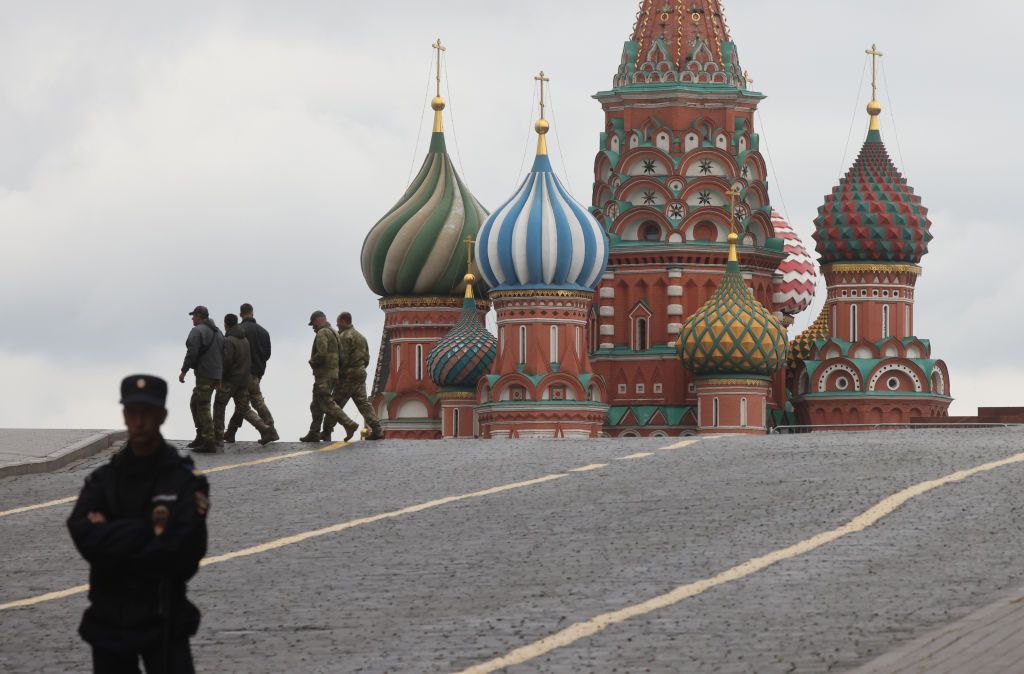
US Congress proposes updates to Belarus Democracy Act, increasing sanctions
The U.S. Congress on June 8 published a bill to reauthorize and modify the Belarus Democracy Act of 2004, reaffirming U.S. support for the people of Belarus and laying the groundwork for increased sanctions against the regime of Belarusian dictator Alexander Lukashenko.
The bill, titled "The Belarus Democracy, Human Rights, and Sovereignty Act of 2024," is sponsored by representatives Bill Keating (D-MA), Tom Kean (R-NJ), Marcy Kaptur (D-OH), and Joe Wilson (R-SC). It notes the participation of the Lukashenko regime in Russia's war against Ukraine and the abduction and deportation of Ukrainian children, as well as its provocations using migrants on the Belarusian borders with EU countries.
The bill provides for sanctioning not just senior regime officials, but those directly engaged in aiding Russia's war efforts and abducting Ukrainian children.
It also notes widespread human rights violations by the Lukashenko regime since the 2020 presidential elections, prompting the largest protest rallies in Belarus' history.
The bill condemns the Lukashenko regime and proposes that exiled opposition structures – the Coordination Council, a proto-parliamentary body, and opposition leader Sviatlana Tsikhanouskaya's United Transitional Cabinet – be recognized as "legitimate institutions for dialogue on the peaceful transfer of power, and to support them in this process."
Tsikhanouskaya welcomed the bill as a sign of sustained support for Belarusians' democratic aspirations.
"Heartfelt thanks to the people of the United States for standing with Belarusians in our quest for freedom," she said, commenting on the bill.
First adopted in 2004, the Belarus Democracy Act received three prior updates – in 2006, 2011, and 2020 – to reflect the changing circumstances and maintain U.S. support for democracy in Belarus.
The bill will be voted on by the House of Representatives and U.S. Senate, and is expected to be signed into law by the end of 2024. Tsikhanouskaya will make an official visit to Washington DC ahead of the bill's passage through Congress.
Convicted Belarusian railroad saboteur has two more years added to his 23-year term
A Belarusian court has handed down another two-year sentence to convicted railroad saboteur Dzianis Dzikun, increasing his total prison term to 25 years, the Belarusian human rights group Viasna reported on June 11.
The 31-year-old Dzikun belonged to the "railroad saboteurs" – a grassroots group of Belarusians that carried out sabotage attacks on the Belarusian railroad, disrupting the transit of Russian military supplies and personnel toward Ukraine at the start of Russia's full-scale war.
According to the prosecution, Dzikun, Aleh Malchanau, and Dzmitry Ravich set fire to a relay signaling and alarm system on a segment of the railroad connecting Belarus to Ukraine on Feb. 28, 2022 – the fourth day of Russia's full-scale war on Ukraine. The three men were convicted of high treason, terrorism, and extremism, and sentenced between 21 and 23 years in prison.
In detention, Dzikun has been repeatedly placed in solitary confinement, and later charged with malicious disobedience.
The political prisoner has appealed against his latest two-year sentence.
According to the testimonies of former political prisoners, having an unbuttoned prison uniform, refusing to greet guards, or non-compliance with humiliating orders of guards can constitute "disobedience," punishable first by solitary confinement or other forms of pressure, further resulting in new criminal charges.
At least 11 political prisoners have received additional terms while in custody since 2020.
Supporting Ukraine in its battle against Russia is an offense in Lukashenko's Belarus. While the Belarusian regime has abstained from committing troops to the battlefield, it has made its territory and infrastructure available for Russia to wage its war on Ukraine. The Lukashenko regime has also fully aligned its propaganda machine and official position to back Russia's war on Ukraine.
By February 2024, thirteen Belarusians had been convicted of sabotage of the railway in Belarus, receiving a cumulative 199.5 years of imprisonment. According to a report by Viasna Human Rights Group, at least 37 individuals received criminal charges for sharing information about the Russian military in Belarus; 15 were captured for planning to join the ranks of the Ukrainian army, and 14 were charged for donating to Belarusian volunteers.
